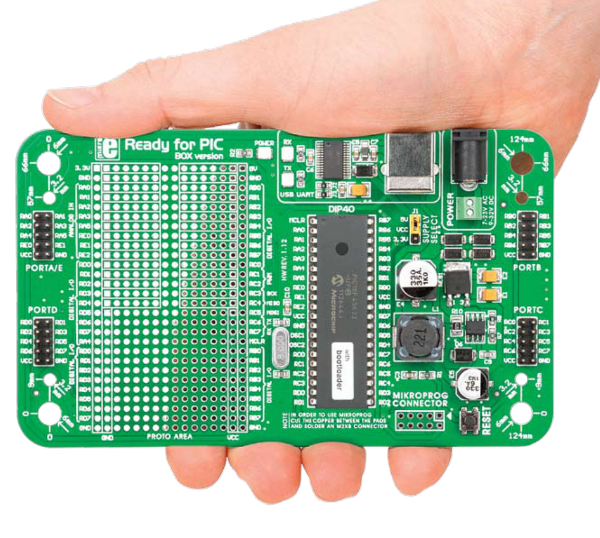
Activate eSata on Sheevaplug with Debian I recently bought an external hard disk with an eSata interface, it was not easy to find (almost are with USB2/3, other are expensive advanced NAS), but I did. The purpose of this disk is to make backups. But, on my Sheevaplug, the main partitions (/root, /boot...) are on an USB key (Toshiba 16 GB) running Debian stable. When I plugged my new hdd it was not recognized ! Actually I first configured my sheevaplug following some tutorials (http://www.cyrius.com/debian/kirkwood/sheevaplug/ for example). It was said to set the boot variable "arcNumber" to 2097. Why ? In facts ARM SoC doesn't have peripherals discovery mode, so you need to tell which board you're running on.
After looking a bit into Debian's kernel, it seems that eSata interface is activated only if arcNumber is set to 2678 ! If I do that, original Ubuntu on NAND flash (factory installation) doesn't recognize the current SoC because arcNumber 2678 is a patch from Debian (in original installation, eSata is activated by default). The second point is that if you set the board as an eSata board, Debian will try to boot on the eSata hard disk (even if you specify different kernel root=XX values).
So what to do ? The solution is to specify your partitions not using classic /dev/sdXXX format, but using UUID numbers. They are not human readable, nevertheless they refer to an unique partition ! The first step consists in listing your partitions UUID :
ls -l /dev/disk/by-uuid/
lrwxrwxrwx 1 root root 10 Sep 27 07:34 1642ad57-77aa-494c-aa77-6998d420eb8f -> ../../sda3
lrwxrwxrwx 1 root root 10 Sep 27 07:34 198239b4-ff16-4dda-8df0-37b106005817 -> ../../sda1
lrwxrwxrwx 1 root root 10 Sep 27 07:34 2e0cd399-3839-4e4e-bc57-5e6628841bc1 -> ../../sda2
lrwxrwxrwx 1 root root 10 Sep 27 07:34 dd27350b-2522-46a6-862e-0cbc072b535f -> ../../sda4
Then, edit /etc/fstab to use UUID and not /dev/sdXXX (it's fastidious I know) After that, you need to reboot with the serial console connected and stop automatic boot (type a key) to edit uBoot configuration. We'll set arcNumber to 2678 by default.
setenv arcNumber 2678
Then edit bootargs_options (for me it's bootargs_options_usb) to set correct UUID value
setenv usb_bootargs_root "root=UUID=2e0cd399-3839-4e4e-bc57-5e6628841bc1"
Last step is to edit the global boot_cmd to set arcNumber to 2097 before booting to NAND (in my case, if USB boot fails it will try to boot on MMC then on NAND) :
setenv bootcmd 'setenv arcNumber 2678; saveenv; run usb_boot; setenv arcNumber 2097; saveenv; run bootcmd_mmc; run bootcmd_nand'
Finally save environment variables to flash and boot
saveenv
boot
My final environment variables
ethact=egiga0
bootargs_root=ubi.mtd=1 root=ubi0:rootfs rootfstype=ubifs
mtdpartitions=mtdparts=orion_nand:0x400000@0x100000(uImage),0x1fb00000@0x500000(rootfs)
ethaddr=00:50:43:01:4C:56
bootargs_console=console=ttyS0,115200
bootargs_root_nand=ubi.mtd=1 root=ubi0:rootfs rootfstype=ubifs
bootcmd_nand=setenv bootargs $(bootargs_console) $(mtdpartitions) $(bootargs_root_nand); \
nand read.e 0x00800000 0x00100000 0x00400000; bootm 0x00800000
bootargs_root_mmc=root=/dev/mmcblk0p2 rootdelay=5
bootcmd_mmc=setenv bootargs $(bootargs_console) $(bootargs_root_mmc); mmcinit;\
ext2load mmc 0:1 0x800000 /uImage; bootm 0x00800000
real_bootcmd=run bootcmd_mmc; run bootcmd_nand
filesize=32D62A
usb_bootargs_console=console=ttyS0,115200
usb_bootcmd_usb=usb start; ext2load usb 0:1 0x01100000 /uInitrd; ext2load usb 0:1 0x00800000 /uImage
usb_boot=setenv bootargs $(usb_bootargs_console) $(usb_bootargs_root); run usb_bootcmd_usb;\
bootm 0x00800000 0x01100000
mainlineLinus=yes
bustargs_root_usbroot=/dev/sda2
usb_bootargs="root=UUID=2e0cd399-3839-4e4e-bc57-5e6628841bc1"
stdin=serial
stdout=serial
stderr=serial
mainlineLinux=yes
enaMonExt=no
enaCpuStream=no
enaWrAllo=no
pexMode=RC
disL2Cache=no
setL2CacheWT=yes
disL2Prefetch=yes
enaICPref=yes
enaDCPref=yes
sata_dma_mode=yes
netbsd_en=no
vxworks_en=no
bootdelay=3
disaMvPnp=no
enaAutoRecovery=yes
I added a rule in fstab to mount my hdd at startup
UUID=590f30b1-7727-4d0a-a86a-2360ec0b3f88 /media/backup ext4 defaults 0 1
A simple backup script based on rsync that power down disk after backup is done.




